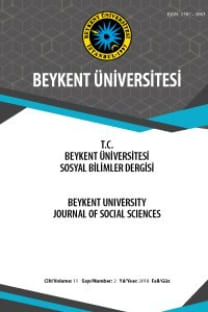Analysis of Corporate Income Tax Rate Changes and Earnings Management
tax, corporate income tax rate changes; earnings management; discretionary accrual; income minimization
___
- Burgstahler, D., & Dichev, I. (1997). Earnings management to avoid earnings decreases and losses. Journal of
- Accounting and Economics, 24(1), 99-126. Cohen, D. A., & Zarowin, P. (2010). Accrual-based and real earnings management activities around seasoned equity offerings. Journal of Accounting and Economics, 50(1), 2-19.
- Dechow, P. M., Sloan, R. G., & Sweeney, A. P. (1995). Detecting earnings management. Accounting Review, 193- 2
- Government of the Republic of Indonesia. (2007). Consolidation of law of the Republic of Indonesia Number 6 of 1983 concerning general provisions and tax procedures as lastly amended by the law number 28 of 2007. Jakarta:
- Government of the Republic of Indonesia. Government of the Republic of Indonesia. (2008). Consolidation of law of the Republic of Indonesia Number 7 of 1983 concerning income tax as lastly amended by the law number 36 of 2008. Jakarta: Government of the Republic of Indonesia.
- Guenther, D. A. (1994). Earnings management in response to corporate tax rate changes: Evidence from the 1986 Tax
- Reform Act. Accounting Review, 230-243. Liu, Q., & Lu, Z. J. (2007). Corporate governance and earnings management in the Chinese listed companies: A tunneling perspective. Journal of Corporate Finance, 13(5), 881-906.
- Slamet, A., & Wijayanti, P. (2012). Respon Perubahan Tarif Pajak Penghasilan, Insentif Dan Non-Insentif Pajak
- Terhadap Manajemen Laba. In Conference In Business, Accounting And Management (CBAM) 2012 (Vol. 1, No. 1, pp. 1-14).
- Yamashita, H., & Otogawa, K. (2008). Do Japanese Firms Manage Earnings in Response to Tax Rate Reductions in the Late 1990s. The Journal of Management Accounting, 16(1), 41-59.
- Xie, B., Davidson, W. N., & DaDalt, P. J. (2003). Earnings management and corporate governance: the role of the board and the audit committee. Journal of Corporate Finance, 9(3), 295-316.
- ISSN: 1307-5063
- Yayın Aralığı: Yılda 2 Sayı
- Başlangıç: 2007
- Yayıncı: Beykent Üniversitesi
CO2 Emissions in India: Are the States Converging?
Enigma of Silence in Organizations: What Happens To Whom and Why?
Gender Heterogeneity in Ease of Access to Credit: The Case of a Ghanaian MFI
Impact of Shocks on the Development of Turkish Banking Industry
Analysis of Corporate Income Tax Rate Changes and Earnings Management
Martin Surya MULYADİ, Yunita ANWAR, Lili YANNY
K. M. Anwarul ISLAM, M. Muzahidul ISLAM, Mahbuba ZAMAN
Empirical Analysis of Weak Form Efficiency Evidence from National Stock Exchange of India Ltd
